The social responsibility policy is very important, starting from the production process to the product design itself.
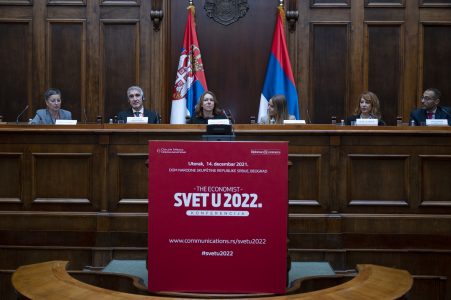
The third panel at The Economist World 2022 conference was dedicated to energy, decarbonisation, resource efficiency, the circular economy and biodiversity, which are all part of the Green Agenda and are directly related to the construction sector. Representatives of companies from this sector, mostly members of the Green Building Council, talked about these topics.
Stylianos Tsoktouridis, MSc, Managing Director of Alumil YU Industry A.D., began his presentation by explaining that “with more than 30 years of experience, Alumil has been taking environmental issues seriously.” “The social responsibility policy is very important to us, starting from the production process to the product design itself. We have invested a lot in Serbia and developed a very sophisticated line of metal segregation. We also recycle aluminium, melt it and use it to manufacture our products. By doing so, we consume only 5% of the energy that is required for the production of primary aluminium. Not only have we saved energy, but we have also managed to avoid the creation of extremely harmful substances which come from producing aluminium from bauxite, an outdated option for us.
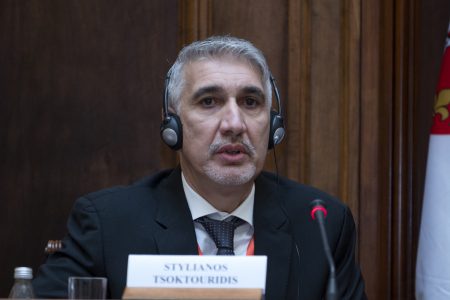
Over 60 percent of our products have a green certificate. We are investing in our equipment and we have eliminated the use of fossil fuels, which we have replaced with greener energy sources, such as natural gas and electricity. We have also significantly reduced our carbon footprint and installed a smart energy management system to reduce energy consumption. By implementing international regulations, we have completely eliminated heavy metals from our products, and we have invested heavily in wastewater treatment plants for the water-neutral and safe.
We have gone a step further in regard to our products. Our research and development team has been constantly studying and applying new technologies related to the design of our system, to improve energy efficiency. We all know that 40 percent of household energy is lost through vents, so our energy-efficient systems can eliminate energy losses. One of our products is the solar tracking system, which increases the efficiency of solar panels. We are now working towards raising consumer awareness, in terms of minimizing energy consumption in their homes,” Mr Tsoktouridis said.
Jovana Cvetković, Development, TO and Innovations Director at MPC Properties, points out that the company was launched more than ten years ago as a pioneer in investing in green building. Today, MPC Properties deals with the development, construction, management and maintenance of facilities.
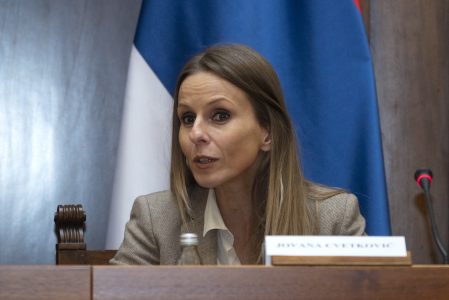 Ms Cvetković said: “The most important thing in green building is implementing all the postulates of green construction, from the idea to planning, design, execution, and finally, use. Investments in green building are quite big, to begin with, but in the long run, they pay off many times over, because proper, timely, long-term application of all standards and postulates of the green building generates great savings. The point is to extend the life of the facility. By choosing the appropriate equipment and the way you install technical systems, you save a lot of energy and water in the end.
Ms Cvetković said: “The most important thing in green building is implementing all the postulates of green construction, from the idea to planning, design, execution, and finally, use. Investments in green building are quite big, to begin with, but in the long run, they pay off many times over, because proper, timely, long-term application of all standards and postulates of the green building generates great savings. The point is to extend the life of the facility. By choosing the appropriate equipment and the way you install technical systems, you save a lot of energy and water in the end.
I would like to mention that MPC Properties has been the recipient of very important certificates here this year. As for business facilities go, I would like to single out the Ušće Tower Two. Here, for the first time, we installed an integrated system of natural ventilation in the facade itself was whereby the grilles that are located on the entire façade and allow the inflow of fresh air and natural ventilation on each floor, which, in turn, increases comfort and preserves good health of both visitors and employees. Furthermore, we planted autochthonous types of plants here. These are just some of the features that make the Ušće complex unique on several grounds.
The most important thing in green building is implementing all the postulates of green construction, from the idea to planning, design, execution, and finally, use.
The Navigator complex was gold-certified, something that we are very proud of. This is a very good project because we managed to reduce utility costs to a minimum, which means a lot to our users and to us, as the developers. By doing so, we have achieved a higher level of sustainability, while preserving both the facility and the environment.”
Dušica Gaković, Project Leader at Deka Inženjering doo, that ever since the company was launched, in 2014, its vision was to offer a better quality of life and bigger comfort in the residential facilities they built. “In 2014, there were quite a few unsold apartments on the market and many developers withdrew. We, on the other hand, were designing a huge complex in Novi Beograd, called Block A. Our idea was for this facility to be the best block in the neighbourhood. Today, seven years later, I believe we were successful at that. This was a successful project and our clients, be it those who live there or those who want to sell their apartment, are very happy because the price of their property is much higher now.
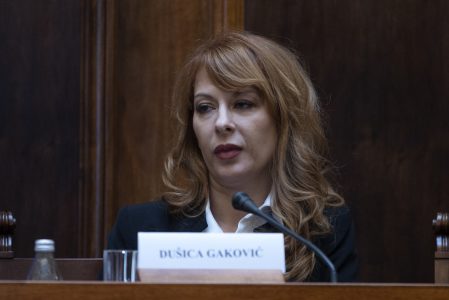
We have offered something different to the market, namely top quality and environmentally friendly building material. We even considered obtaining a green certificate for the first phase of the construction of Block A. If we had done that, we would have been the first such large-scale residential project in Europe to qualify as a green building. We gave up on that because we realized that we would use environmentally friendly building material in any case as this is very important to buyers of our apartments so the certificate, as such, would be considered a huge benefit,” Ms Gaković concluded.
Tijana Koprivica, Chief Business Sustainability Officer at Delta Holding, explained that Delta operates in different business sectors and that sustainability is their operating principle in all those segments. This does not only entail environmental protection, but it also has a social aspect, which involves managing the company so as to support the implementation of all these business principles.
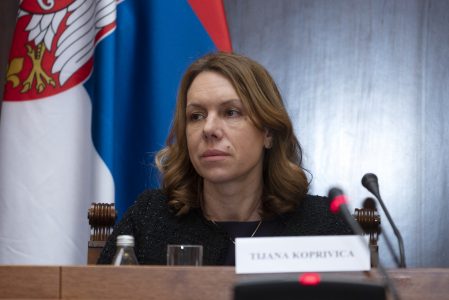
“Environmental protection is just one segment, which we respect above all. Every year, we do energy efficiency audits in Delta Holding’s facilities and our plan for the next year is to launch nine solar power plants at different locations within our system.
We are continuing to responsibly manage the waste generated at our sites. This entails proper selection and disposal of waste. Our company Delta provides waste management services to our clients but also consulting services in the field of environmental protection. We are also mindful of waterways in our country.
It is especially important that we regularly inform our employees and instruct them on how they can contribute to environmental protection in their everyday work. All our offices have recycling instructions and instructions for saving energy. We also have an eco corner where we report on important events and news, so our employees receive the freshest information and can get involved and contribute, not only at work but also in their homes.
We have been using alternative energy sources at our locations for a long time. We use biomass for heating on three farms. Delta House is a wonderful, modern building and we are really proud that we are all working in one place, in a healthy and beautiful environment. Delta House is constructed with the modern and environmentally friendly building material,” Ms Koprivica stated.
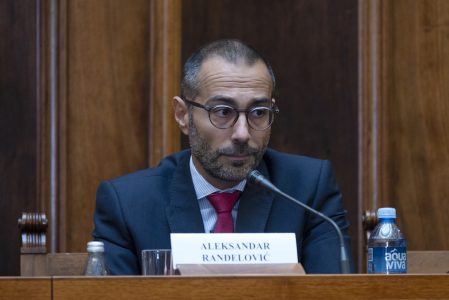
Aleksandar Ranđelović, a Leasing Expert at GEFF Serbia Leasing, said that the goal of the GEFF program is to financially assist the green transition and that the process has already begun. He also said that the race ends in 2055 and that the goals have been set worldwide. As he explained, “By 2030 or 2040, greenhouse gas emission should have been reduced by 50 percent and by 2050, we should become carbon neutral.”
“Finances play a very important role in this whole agenda. This was acknowledged at the Paris Conference in 2015 and validated at the recent climate summit in Glasgow. The role of finance is one of the key ones. We have the representatives of large companies present today, but 99% of our economy rests on small and medium-sized enterprises.
The green transition of the whole economy requires huge investments, and these investments are very difficult to generate from regular income, so we have to use everything at our disposal. I am mainly referring to credit lines, funds and various programmes implemented by international institutions and banks.
The role of finance is one of the key ones, as 99% of our economy rests on small and medium-sized enterprises
GEFF Serbia Leasing is one such initiative. We provide a credit line, developed by the European Bank for Reconstruction and Development, which can be used to purchase energy-efficient equipment and finance renewable energy sources. Mostly construction companies use this credit line.
The main conclusion is that economic viability is the first and basic motive of a company to invest in energy-efficient equipment. 20 percent savings in energy costs have a good effect on net profit and can increase revenue by 5 percent.
Certain measures and investments have paid off quite quickly, in the matter of three, four or five years per capital investment. This is what mainly motivates companies to get involved in this type of project,” Mr Ranđelović concluded.